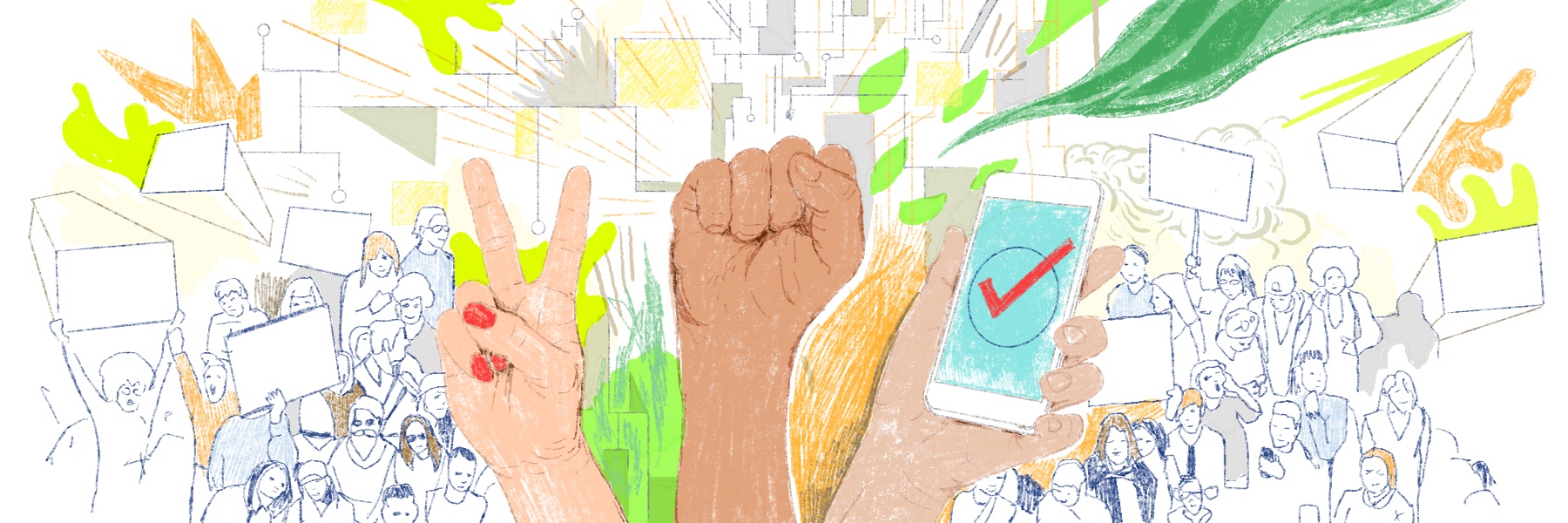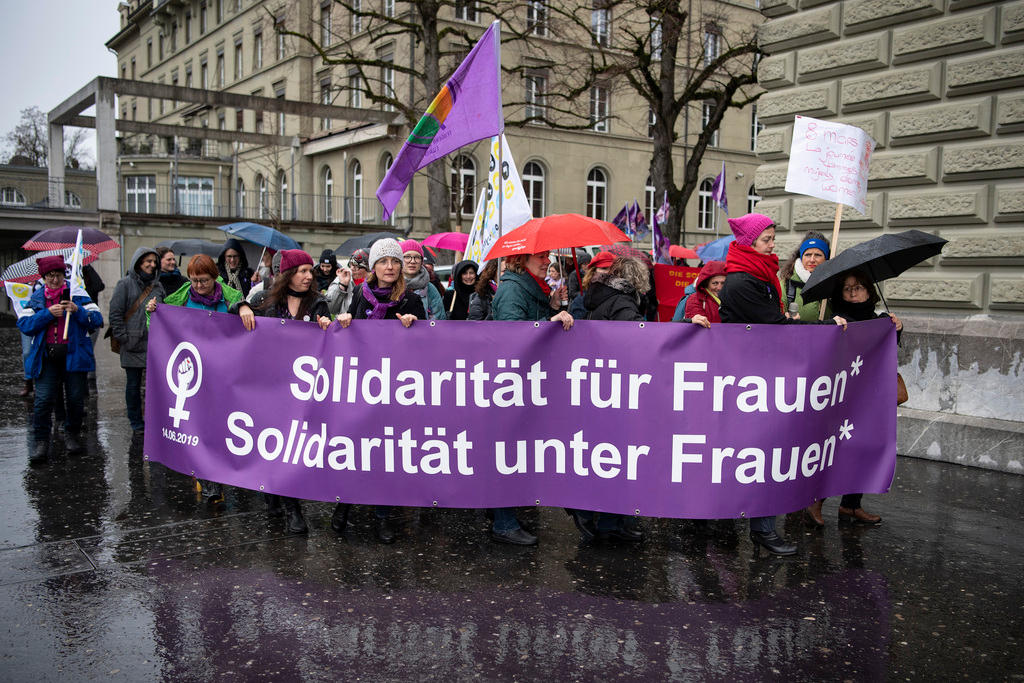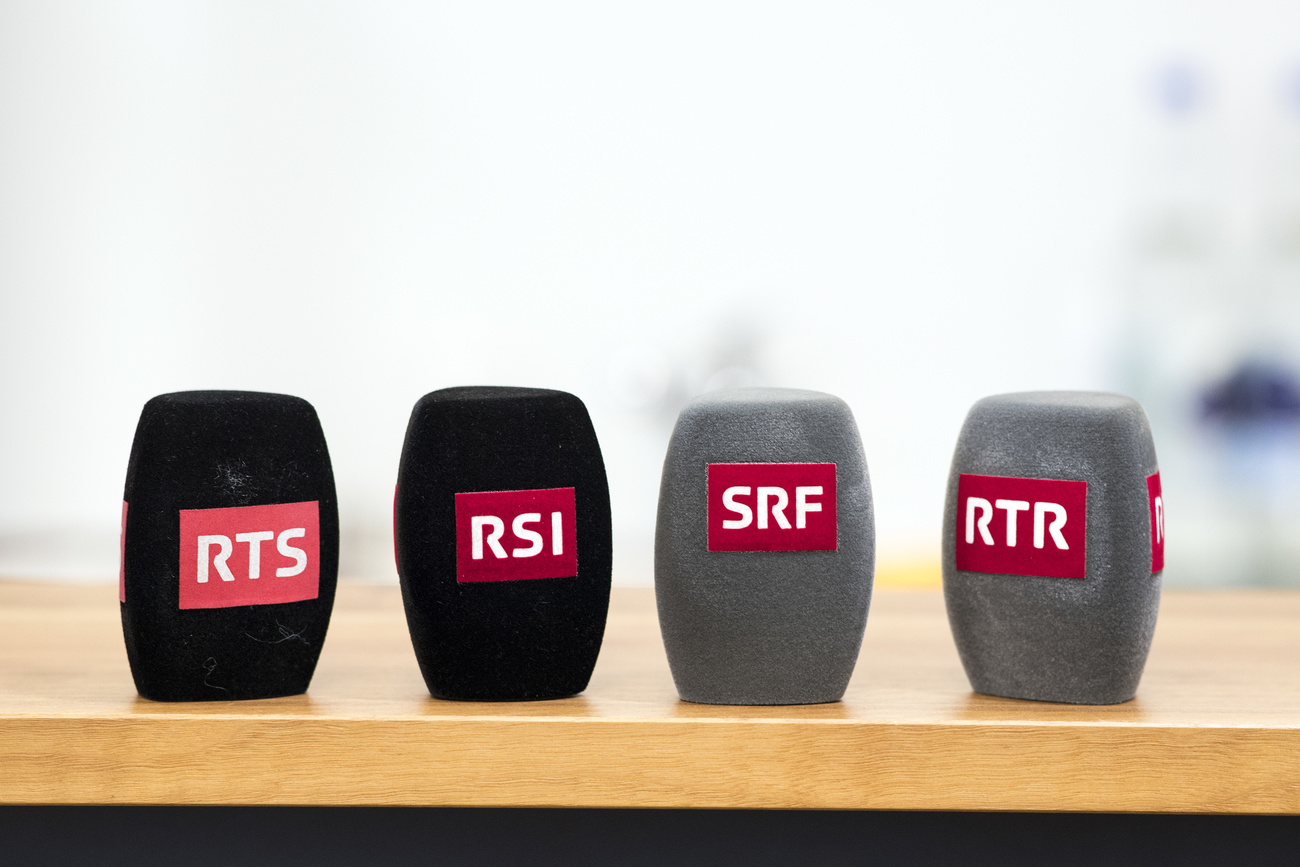Gender-neutral language: an issue for the ballot box?

As more public and private media try to communicate gender neutrally, some say it’s a distraction from real issues. How can you legislate on language?
In February, Switzerland’s French-language public broadcaster RTS released new journalistic guidelines on gender-neutral language. Introducing TV or radio shows with, for example, “Bonne soirée à tous” (“Good evening to all”, where “all” is a masculine plural implying both genders) was consigned to the history bin; “Bonne soirée à toutes et à tous” (“Good evening to all women and all men”) is now the preferred option.
The announcement met with plenty of online debate and criticism: of how RTS presented the advice (in a rather light-hearted video); of the anti-aesthetic nature of new forms of “inclusive writing”; and around the bigger question of the role of public media and language in a democracy. The Le Temps newspaper called the decision a “militant act” which would “impose a certain vision of the world on viewers and listeners”.
When German-language broadcaster SRF also decided to update its use of language, the debate spread to the rest of the country. The Tages-Anzeiger ran a series of articles on gender-neutral language, including a “non-representative” but well-answered survey finding scant support for new forms of inclusivity in written German*. Beyond the press, the issue was also raised in Zurich’s city parliament (where it was rejected) and even the national parliament (see further below).
* For example, while in German the word “doctors” is usually “Ärzte”, suggested forms are “Ärzt*innen” or “ÄrztInnen”, plural forms that include both genders. In French, rather than “étudiants” for “students”, a suggested inclusive form is “étudiant·e·s”
More
People’s initiative
The arguments of proponents are straightforward: language determines how we see, define, and classify reality. By making language more equal, we make reality more equal. But who should be dictating what language is to be used in the first place? Should it be decided top-down by authorities? Can language be “imposed”, or should it spread up from public use? Can you legislate language, and in a direct democracy, can you vote on it?
After the RTS announcement, the Swiss section of the “Defence of the French Language” (DLF) published an open letter to RTS directors, protesting the decision and promising to launch a people’s initiative to “ban the use of inclusive writing in Switzerland”. The move, DLF said, amounts to a “weaponisation” of language and a “fatal trap for the French language”. The group referred to the Académie Française, the linguistic oversight body in France, which has been unenthusiastic about gender-neutral scripts.
Aurèle Challet, president of the Swiss DLF, tells SWI swissinfo.ch that he expects to launch the people’s initiative in October in Geneva. “Direct democracy means directly involving people in decision-making,” Challet says. But inclusive language, through its complexity, actually excludes people. For him, the whole debate is a “false” one which doesn’t tackle the “fundamental problems” of gender inequality. The text of the initiative will propose to ban the use of inclusive language in official state or cantonal communications, across the country.

More
Newsletters
Old issue
But is such an initiative already too late? Neutral language has been promoted in Switzerland at the national level for at least two decades now, as an official guideExternal link (in French) from the year 2000 show. A 2007 Federal ActExternal link stipulates that federal authorities use “gender appropriate” wording in communications, while various cantons – including Vaud, Challet’s region – also already have guidelines in place. Universities have been promoting such language for years. The WOZ newspaper, based in Zurich, has been using gender-neutral German since the 1980s; Le Courrier, a leftwing paper in Geneva, recently made a similar shift.
Benjamin Roduit, a French teacher and member of parliament for the Centre Party, is also sceptical however. In a motion presented in Bern in March, he wrote that “the proliferation of orthographic and syntactical marks implied [by a gender inclusive script] leads to a disunified language, disjointed in its expression, and creating a confusion that leads to illegibility”.
Roduit also wants the government to avoid using such forms in official communications . “You can’t just make up a language,” he tells SWI swissinfo.ch. Like the DLF, he talks about the importance of language being based on a “series of basic rules which the whole population can understand and subscribe to”. Changing the structure and grammar of a language for purposes of equality would be a step too far.
Unlike the DLF, Roduit is less keen on a public vote. “As a multilingual country, Switzerland isn’t so well-placed on this,” he says. That is, it would be difficult to frame a coherent question around regulating four different languages at the same time. Roduit reckons the way forward is through “better reflection, not necessarily a vote.”
So far, his inroads in parliament have been minor – nine people co-signed the motion, all from French-speaking cantons. The government, meanwhile, rejected the motion, referring to the Federal Act on language (above), and also reminding deputies that such language has been around for a long time already.

More
A global stress test for freedom of expression
‘Role model’
Valérie Vuille, Director of Décadrée, a research institute promoting equality in the media, says it would be “violent” to ban linguistic practices through a popular vote. Language is something very “personal and organic” – not something to be legislated too closely, she argues. Vuille’s association provides advice and support for associations and media – including Le Courrier – which want to become more gender-neutral in their texts.
Décadrée also worked with RTS. But whereas a private newspaper can write how it likes, can a public broadcaster simply change its practices without consulting the public? Vuille says the RTS case is not an “imposition” (as a law would be), but rather a “way of setting an example” for journalists, which she welcomes – particularly as RTS, as a public media, is in the position of “role model”.
As for the autonomy of public media to make such choices, this was defended by Communications Minister Simonetta Sommaruga in parliament: RTS is free “to decide which words and expressions are used in its programmes”, Sommaruga said.

More
English as a common language in Switzerland: a positive or a problem?
Emotional
Why such heated reactions to the whole thing? Noah Bubenhofer, a linguistics professor at the University of Zurich, says that “we all use language, and therefore we all have an opinion on it”. For Bubenhofer, language, since it is so key to identity, is even more sensitive than other topics. “Many see language as a container for the world,” he says. And for most of us it’s “a very stable system”. Disrupting the system leads to resistance. “People are generally conservative when it comes to language,” he says.
But Bubenhofer also makes the point that languages change over time, often for reasons of sheer pragmatism (the rise of letterpress printing, for example, led to more linguistic uniformity, since reaching a wider audience meant writing in a more simple and accessible style). He also says that “when a language doesn’t evolve, it dies.” And while he doesn’t see a popular vote as a wise move – “language is too much of a living process to be pinned down by law” – he says it’s important to have discussions, to “sensitise” people about what’s at stake.
To this end, Bubenhofer mentions studies – in German – which show that gender stereotypes are reinforced, or at least mirrored, in language: for example, when people hear the word “Arzt” (doctor, in the masculine generic form), they tend to think first of a man. Studies across other gendered languages suggest similar results. In 2015, for example, Sweden introduced the word “hen” as a third, neutral pronoun to refer to someone of unknown or undeclared gender (similar to the neutral third-person “they” in English). “Hen” has been something of a success: not only has its use increased over time, but initial aversion decreased on exposure to the word.

More
A gender-inclusive language to change the world
‘A tool among others’
Across the world, of course, it’s also easy to find countries where a low gender parity score (according to the World Economic Forum’s Global Gender Gap report for example) is not linked to how gendered the native language is. Turkey and Iran, which speak “genderless” languages (i.e. nouns are neither male nor female), are not paragons of women’s rights.
Vuille from Décadrée, along with other proponents, say that ultimately language is “one tool among others” – it’s not a panacea for an equal society, but an “essential” part of the effort. As for the current debates, and the future of such forms of writing and speaking, she says things are already moving. The recent noise is not a reflection that all this marks a new debate, Vuille says, but rather a more positive sign that it has already been somewhat “democratised” and has moved into the wider public sphere.

In compliance with the JTI standards
More: SWI swissinfo.ch certified by the Journalism Trust Initiative











You can find an overview of ongoing debates with our journalists here . Please join us!
If you want to start a conversation about a topic raised in this article or want to report factual errors, email us at english@swissinfo.ch.